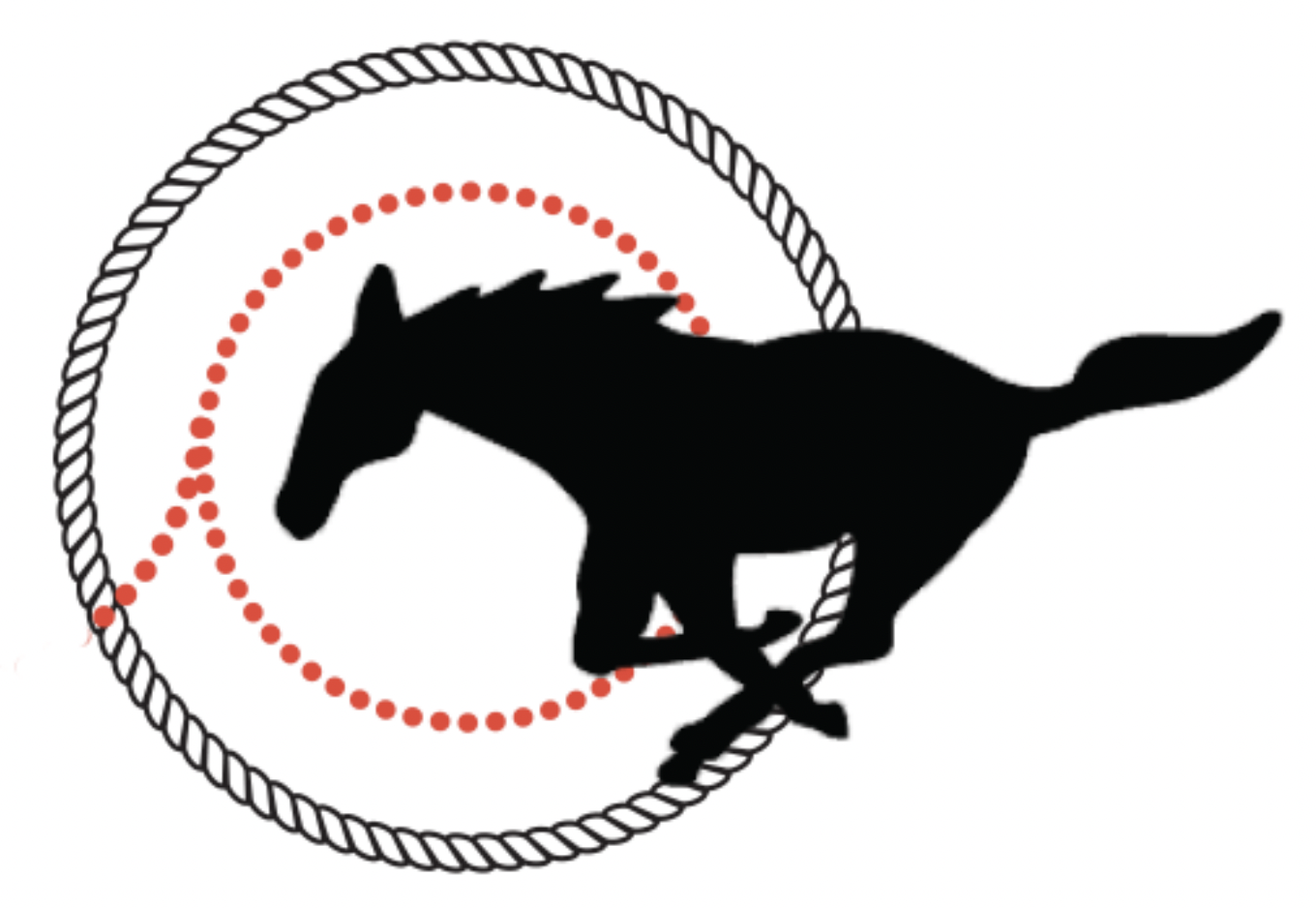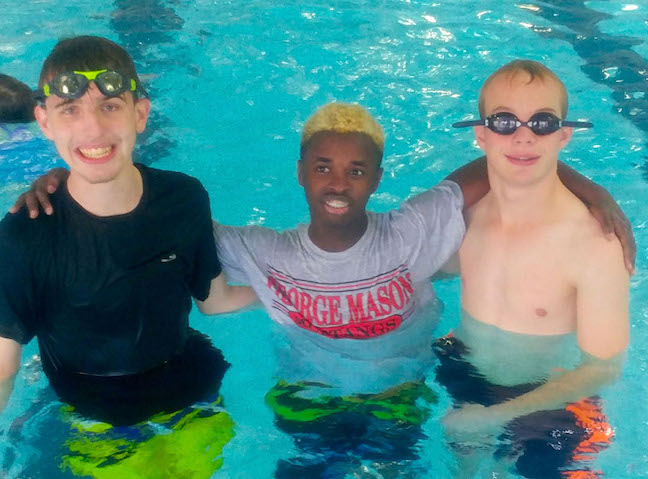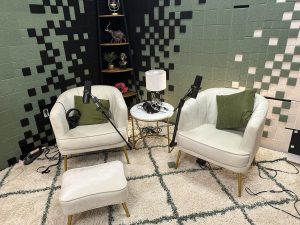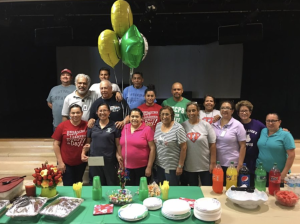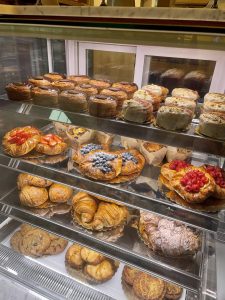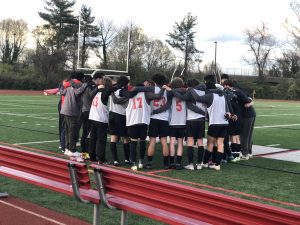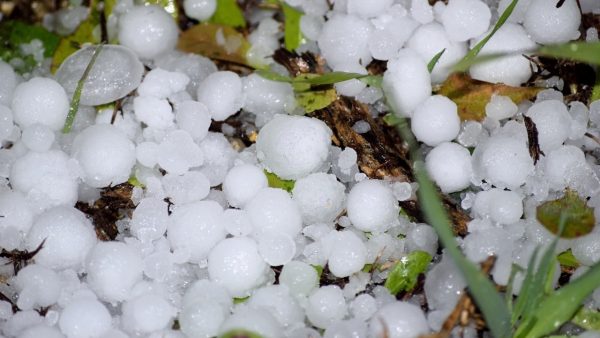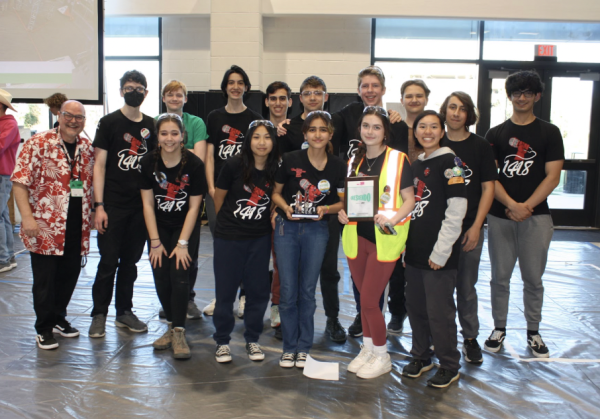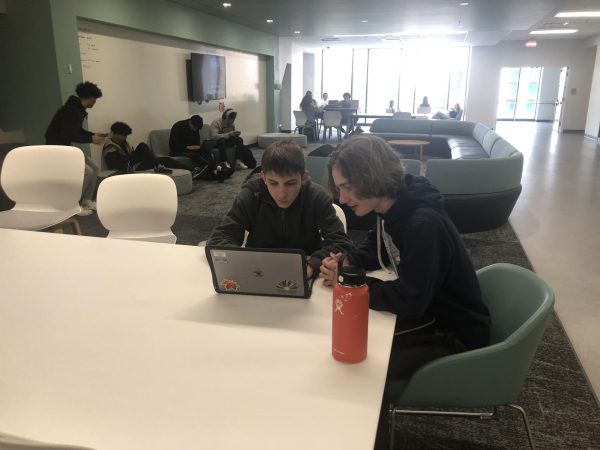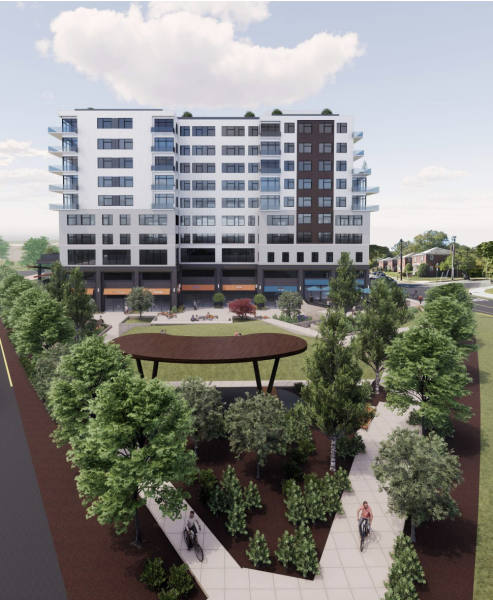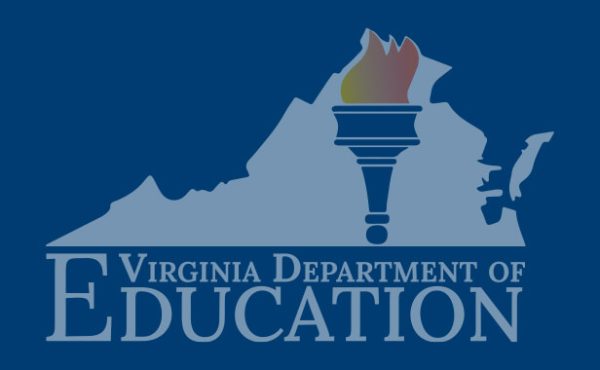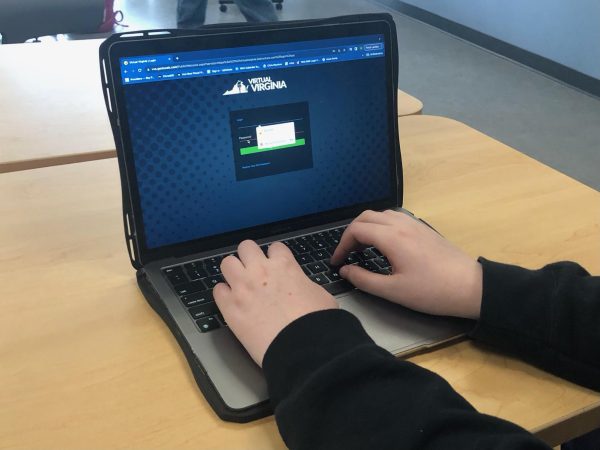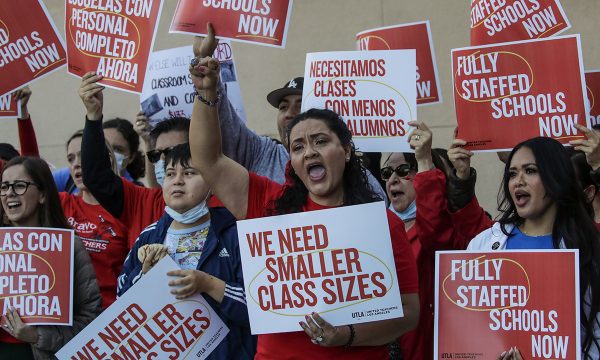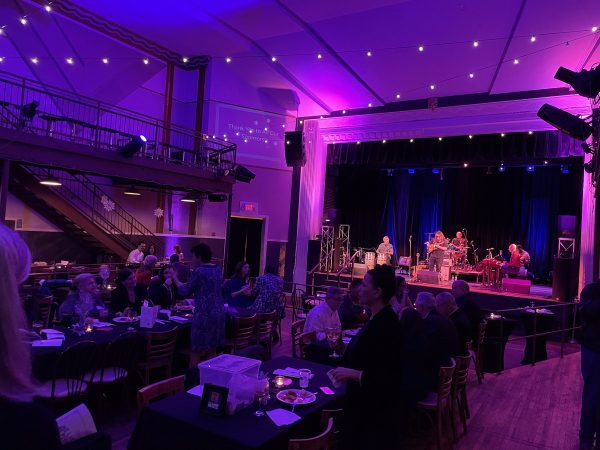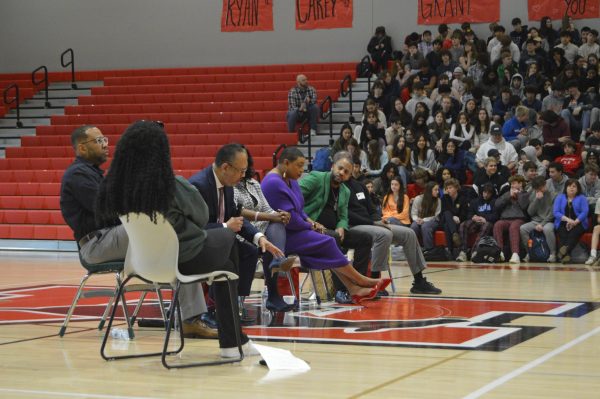A Day in the Life of the Life Skills Students
From left to right: Tommy Nystrom, Lucas Maddox, and Will Dickson at the swimming pool. This is when they took a field trip to Providence pool. (Photo Courtesy of Mrs. Abdelmalek.)
June 14, 2018
You have probably been stopped by Will in the hallway to show you a video of cool car tricks or to tell you, “You’re pretty.” You have surely heard Tommy talk about his love for the Metro, or seen Lucas with his bright colorful shoes and dyed hair.
Although these students may not necessarily be in your daily classes, they are very involved in the Mason community and have a packed schedule with various different activities every day.
As soon as the clock reaches 8:00 a.m. and the music starts playing, most students make their way to a traditional classroom. At that same time, Will, Tommy, Lucas and others in the GMHS Life Skill program begin their own schedules organized around practical and functional living skills in order to prepare them to function appropriately in the community, workplace, and home.
“Our kids have goals, just like anybody else, but we have to give them the skills to be able to do it,” said Lead Special Education Teacher, Mrs. Jennifer Abdelmalek, who runs the Life Skills class at George Mason. “We won’t teach them trigonometry because they are probably never going to use it, but they will use basic math skills.”
The morning meeting is a daily routine for all the Life Skills students, as every morning they listen to the morning messages and are exposed to current events, followed up with a journal entry. From there, the students begin with their personalized schedules.
Like other Mason schedules, first-period classes alternate from one day to the next. On even days, the students will participate in activities to improve social skills and, on odd days, they will do math.
At 9:38 am, Mustang Block begins, a free period to catch up on work and socialize. You might see some life skills students around, talking to teachers, other students, or in the cafeteria. With regards to school work, these students were also given the opportunity to work with volunteers from the honor society who would come and help them finish their work.
During third period, all Life Skills students have P.E. It may be a collaborative class where they will be combined with other George Mason students, or they might participate in adaptive P.E. where they will work in a small group, usually with Coach Gibbons.
During lunch, efforts are made to get these students to socialize. Whether it be simply saying hello to another student or joining a group of students for lunch, these behaviors are encouraged by paraeducators so the students feel involved.
“You’ve seen them in the hallways since we always try to get them out and about,” Mrs. Abdelmalek said.
After lunch, students have the opportunity to go to a general education class, accompanied by a paraprofessional. Information is modified for them so they can participate in learning material in a way in which they can be most successful. This plan is called an IEP, or an Individual Education Plan.

Aside from regular classes, these students also have a vast range of different opportunities in and out of school where they can explore their individual non-academic interests and participate in everyday life activities such as going to the grocery store.
“Every Thursday, we do cooking and we go to Giant. They get a grocery list and credit card and find those objects. They run the credit card themselves and buy their items. We also do therapy once a week, which the kids love,” Mrs. Abdelmalek said.

Another out of school activity is going to job sites where life skills students participate in vocational work. Their visits to different businesses help give them the basics of what having a job is like and how to work with fellow employees and customers which will help give them a base for their employment in future years. Once a student turns 14, they begin their transition in to post-high school life with an in–house job at first, later moving to an off-site work experience. These off-site experiences include retail, restaurant services, fashion, and clerical work. Often times, the metro will be used as the means of transportation to reach their various destinations as knowledge on how to take public transportation is also very useful for everyday life.
“Will goes to transportation, Body Dynamics, and Clare & Dons to work there, while Tommy goes to the library and works with the buses,” Mrs. Abdelmalek said.
Everything the students do revolve around the hope that they will be able to be independent in the future and be able to go to ACC (Arlington Career Center) to later find a job.
On top of all these classes, Mrs. Abdelmalek has incorporated her own class into the curriculum which she calls “Life Hacks.” This class provides additional support in preparing students by giving them tools which will help them navigate their lives in the future. Students are taught things such as; appropriate health habits, as well as more complex things such as tips on creating and keeping a budget, how to find a place to live, citizenship skills, tips on how to handle a crisis, and more.
Say “Hi” to them in the halls, yes, but your support can go past hallways. Feel free to join the Best Buddies club, a group that does fun and engaging activities inside and outside of school with the students. Recently, the Best Buddies club worked with George Mason to host a Special Olympics event, called the “Little Feet Meet,” for life skill students from various Northern Virginia schools, including elementary and middle schools.
